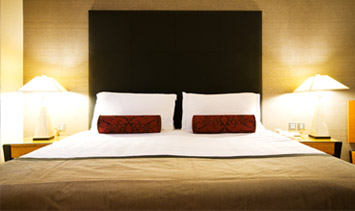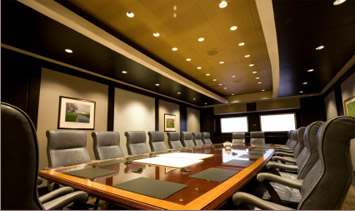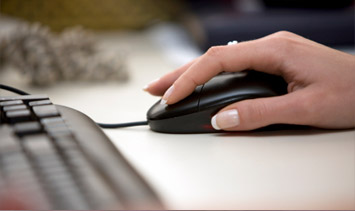How To Get the Most Out of Your Conference or Event. Part #1: Hosts and Attendees
With so many conferences and events each year to choose from, getting the most out of your experience can make all the difference between a successful event and a "non-event". In this article we provide some tips on how hosts and attendees can get the best out of their conference or event.
Conference or Event Hosts
As a conference or event host you'll want the day(s) to go smoothly and without a hitch. In order to make this a reality you'll need to spend time thinking through your objectives, how best to meet these objectives, what topics you want covered, which speakers you will need and the people you want to come to the event (your market). To try to guarantee (as far as possible) that your conference or event meets, or better still exceeds, you and your attendee's expectations you will need to do a lot of planning. Here are the things you should be thinking about:
1. Plan Well in Advance
Set conference or event date(s) and start planning well in advance. Don't leave things until the last minute. Get a team together to brainstorm what you want to accomplish and how you plan to make this happen. Start to break down the various tasks and work through them making sure you know how they will be achieved.
2. Venue Considerations
Look at hotel or conference venues and make a short list of all of the venues that meet your requirements e.g. what will you need in terms of floor space, number of tables, table layout, audio system, presentation equipment, food and drink services etc. Once you have this information in hand you can begin to look at each venue, compare costs and what "extras" each hotel or conference location can offer you.
Once you've identified the venue you like you'll need to work closely with them to finalise your plans. Of course in the event of any issues it's always worth having backup plans or contingencies in place. That way you'll know that if something goes wrong you'll have other options.
3. Speakers
Identifying appropriate speakers for your event is never an easy process so again this is something that shouldn't be left to the last minute. Think about what type of presentation you want and the type of speaker you are looking for to help narrow down your search.
If you are not sure how to find speakers that will be a good match for you consider reading one of our previous article on this. Good quality speakers will be booked well in advance so if you have someone in mind you should approach them as early as possible.
4. Marketing
Making sure people know about your event is clearly very important. Publicising an event used to be centred purely on sending out emails or marketing in media appropriate newspapers, industry journals or magazines. This should still play a part in your marketing campaign but you should also use online marketing through your website and via social media to get your message out.
Prepare for social sharing at the event. Encourage people to tweet and post their thoughts and opinions to Twitter, Facebook, Google+ etc. A great way to be able to follow all the feedback is by encouraging attendees to use a hashtag specific for your event. Let people know what hashtag to use in advance of the event by publishing it in your marketing materials.
Don't forget to take pictures throughout and after the event, and collect all feedback plus any social media mentions you receive to use to highlight this event's success and to market your next event.
Attendees
There are so many reasons for attending conferences. Primarily they are a way to take new knowledge or training on board and make new connections. To this end as an attendee you should be doing some homework before attending the event so that you are aware who will be attending, who will be speaking and the best sessions to attend etc.
1. Be Prepared
Read through the conference or event schedule in advance. Make notes about those sessions or presentations that you feel you will get the most from.
Find out if presentation slides will be available or if there will be handouts to take away or if you'll need to take notes (and have paper and pens available to you if they're not supplied). Ask whether you can record sessions making it easier to remember each talk after the event. If you're not allowed to record find out if the event organiser will be videoing or audiotaping the event and if the recordings will be available to you (and from where).
Also take some time to find out about the speaker so that if you get the opportunity to talk to them you'll be well informed and make a good impression.
2. Set An Event Goal, Then Set New Goals
Before going, set yourself some goals so that you can be sure that you'll get value for money from the event. Having a goal in mind will make it easier for you to stay focused as you move from session to session and listen to the various speakers. Try not to get side tracked unless you think it will add value to the goals you set.
Make lots of notes including what actions you'll need to perform when you get back to the office. Put together a brief or report after the conference on things you've learned or points of interest to follow up on and share this information with colleagues so that they too can benefit from your attendance.
One of the great opportunities of attending a conference or event is to learn something new e.g. new advancements in your industry, change of legislation, new technologies etc. With this information in hand you should set yourself some new goals. This may simply be to read a bit more on a new technique or to familiarise yourself with new information. Whatever it is the lessons you learn should not stop once the conference finishes and you're back at work!
3. Meet As Many People As You Can
Conferences are great places to meet new people as well as providing you with further networking opportunities through the people they know.
Not everyone finds networking easy. So if you find it hard to network and aren't sure how to start the simplest way is to go prepared. Research can stand you in good stead when it comes to starting a conversation e.g. if there is someone you want to meet and you know a little bit about them you could start by saying "I believe you work for xxxx - what are they like as a company" - or "I've heard great things about xxxx".
If you don't know anything about the person you can begin by asking them what company they are from and what their job is. Based on their job you could talk about what projects they are working on and finish the conversation by saying you'd like to keep in touch.
Don't forget to take business card and to exchange cards with those people you think will make useful contacts. Once you've finished talking make some notes on the back of their business card to help you remember them after the event. Then when you follow up with them at a later date you will be able to refresh your memory based on the notes you took.
4. Find Out What Other Companies Are Doing
Conferences aren't just about meeting new people they can also be about finding out what other companies (and competitors) are doing.
By talking to people from other companies you can find out what they are working on, how successful they are, what new ideas or approaches they are looking into, how their companies are managed and what it's like to work for them. Many companies or attendees may not divulge much but even small pieces of information can give you an insight into how competitors compare to your company. You may even find that other companies are looking for collaboration or co-marketing opportunities!
5. Make Time for Yourself
Conferences are exhausting so it's important to take some time out to recharge your batteries and to give your brain a chance to take everything in. If you don't take a break you are less likely to get the most from your conference and more likely to forget important points and lessons. So make time for yourself!
In our next article we'll cover some tips on how speakers and exhibitors can ensure the best ROI from their conference and event attendance.
Conference and Event Management
If you are looking for a partner to arrange your conference or event then Booking Partners can help by finding the right venue to meet your requirements. For conference room bookings and event management contact us on +44 (0)330 022 8643 or via e-mail at reservations@bookingpartners.co.uk.





